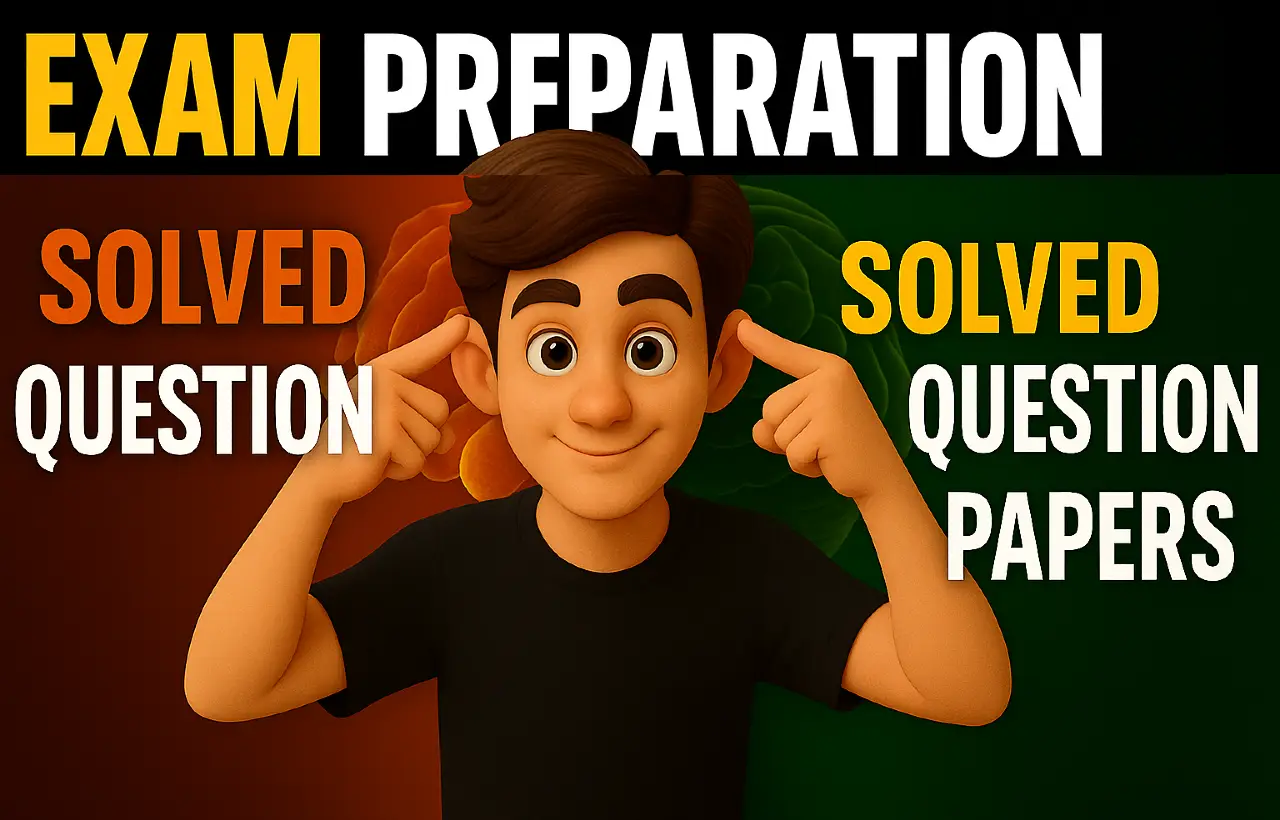Preparing for school and college exams requires more than just reading textbooks. To excel, students must approach their studies with strategy, focus, and the right resources. For students in Class 10, Class 12, and college, tools like important questions, answer keys, previous year question papers, and model test papers can significantly boost performance and confidence.
Why the Right Exam Resources Matter
Every exam—whether for a school board or a university—follows a pattern. Recognizing these patterns is key to efficient preparation. Over time, certain questions repeat, particular chapters carry more weight, and examiners favor specific types of answers.
Using carefully selected materials helps you:
- Focus on high-weightage topics
- Practice real exam-style questions
- Improve answer structure and presentation
- Build confidence and time management skills
Studying with Important Questions
Targeted Practice for Maximum Results
Important questions are typically compiled from past papers, expert input, and syllabus analysis. They help narrow down your revision to topics that have a higher likelihood of appearing in the exam.
Benefits:
- Reduces revision overload
- Allows topic-wise practice
- Highlights frequently tested concepts
How to Use Them Effectively
- Practice writing full answers without notes
- Group questions by chapter to track your understanding
- Combine with answer keys for self-evaluation
Answer Keys: Learning the Right Way to Answer
Understand the Marking Scheme
Answer keys are not just for checking answers—they reveal how to write effective responses. Model answers show the ideal structure, language, and detail level that examiners expect.
Why Answer Keys Help:
- Improve writing style and clarity
- Teach you how to present answers for full marks
- Help in identifying knowledge gaps
Tip: After solving a question, compare your response with the answer key to refine your approach.
Solving Previous Year Question Papers
Know the Exam Before You Take It
Past question papers are essential for understanding the actual exam format. They offer a glimpse into recurring topics, question difficulty, and paper layout.
Advantages:
- Familiarize yourself with commonly asked questions
- Practice under real exam timing
- Analyze trends over the last 3–5 years
Best Practice: Simulate exam conditions by setting a timer and solving papers without interruption.
Board Exams: Focus Areas for 10th and 12th Students
Subject-Specific Preparation
Board exams often follow a predictable structure. For students in Class 10 and 12, focusing on core subjects using reliable resources is crucial.
Key Subject Areas to Target:
- Mathematics: Theorems, formula applications, problem-solving
- Science: Conceptual clarity, diagrams, definitions, experiments
- Social Science: Historical events, map skills, civics terminology
- Languages (English/Hindi): Essays, comprehension, grammar usage
Pro Tip: Combine NCERT or board textbooks with practice materials like important questions and sample answer keys.
Model Question Papers: Exam Simulation for Better Readiness
Model papers are designed to replicate actual exams. Many schools and colleges provide them as mock tests, helping students test their preparation levels in advance.
Why Model Papers Are Valuable:
- Offer full syllabus coverage
- Mirror real-time exam experience
- Identify weak areas and time issues
How to Use Them:
- Take one model test weekly leading up to exams
- Review performance and revise problem topics
- Work with a teacher or peer to discuss difficult questions
Conclusion
Success in school or college exams doesn’t rely solely on hard work—it depends on smart preparation. By using a mix of important questions, answer keys, previous year papers, and model papers, students can sharpen their exam skills and reduce the stress of uncertainty.
Whether you’re preparing for board exams in Class 10 or 12 or facing university-level tests, these tools give you a clear advantage. Integrate them into your study routine, and you’ll be better prepared, more confident, and more likely to succeed.

